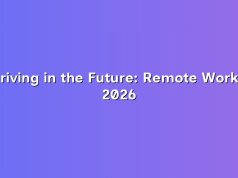The gig economy is no longer a fringe element of the workforce. From ride-share drivers to freelance graphic designers, the gig economy has become a defining feature of the modern labor market. According to the World Economic Forum’s Future of Work 2025, this sector is expanding rapidly, offering flexibility and opportunities to millions of workers. However, it also presents significant challenges, particularly around the lack of traditional benefits, job security, and protections that full-time employees enjoy.
The time has come for policymakers, businesses, and society at large to rethink the rights and responsibilities of gig workers. This editorial explores the current gaps in the gig economy’s safety net and proposes practical solutions to ensure these workers can thrive in a fair and equitable system.
The Gig Economy: A Double-Edged Sword
On the surface, the gig economy appears to be a win-win. Workers gain flexibility, the ability to work remotely, and opportunities to pursue multiple income streams. For companies, the model offers cost savings and the ability to scale operations with minimal overhead.
Yet, beneath this flexibility lies a harsh reality. Gig workers are classified as independent contractors, which means they are excluded from essential protections like employer-sponsored health insurance, unemployment benefits, and retirement savings plans. This leaves millions vulnerable to financial instability, particularly in times of economic downturn or personal emergencies.
Key Challenges Facing Gig Workers
- Lack of Benefits: Gig workers do not receive employer-sponsored benefits, including health insurance, paid leave, or retirement savings contributions.
- Income Volatility: Unlike traditional jobs, gig work often results in irregular and unpredictable income.
- Limited Legal Protections: Many gig workers lack access to anti-discrimination laws, workers’ compensation, or collective bargaining rights.
Proposing a Modern Safety Net
Addressing the challenges of the gig economy requires a paradigm shift in how we define work and workers. Traditional employment models, with rigid classifications of “employee” versus “independent contractor,” are outdated in this new era. Here are some solutions to build a modern safety net for gig workers:
Establishing Portable Benefits
One of the most promising ideas is the creation of portable benefits systems. These benefits would be tied to the individual rather than the employer, ensuring workers can access them regardless of where, how, or for whom they work.
How It Works:
- A portion of each payment a worker earns from a gig platform would go into a benefits account.
- Workers could use this account to pay for health insurance, contribute to retirement savings, or access paid leave.
- Gig companies and governments could provide matching contributions or subsidies to ensure affordability.
Policy Recommendation:
- Mandate that gig platforms contribute a percentage of workers’ earnings to a national benefits pool.
- Create tax incentives for workers who voluntarily contribute to their benefits accounts.
Unionization for Gig Workers
Collective bargaining can give gig workers a stronger voice in negotiating fair wages, better working conditions, and access to benefits. Historically, unions have been instrumental in protecting workers’ rights, and there’s no reason why gig workers should be excluded.
Challenges to Unionization:
- Gig workers are often geographically dispersed and operate in isolation, making traditional union models less effective.
- Some companies actively resist efforts to unionize by leveraging their classification of workers as independent contractors.
Solutions:
- Foster the creation of digital unions or worker associations that can organize virtually and advocate for their members.
- Strengthen legal frameworks to protect gig workers’ right to organize without fear of retaliation.
Expanding Unemployment Insurance and Retirement Savings Programs
Gig workers are excluded from unemployment benefits because they are not classified as employees. Similarly, few have access to employer-sponsored retirement plans, leaving many without savings for their later years.
Policy Recommendation:
- Expand unemployment insurance to include gig workers, funded through contributions from gig platforms.
- Create a government-backed retirement savings program specifically for independent contractors, with tax benefits to encourage participation.
Example to Follow:
- In the U.K., the government’s auto-enrollment pension scheme has increased retirement savings rates by automatically enrolling workers in a savings plan while allowing opt-outs. A similar system could be designed for gig workers in the U.S.
Technology Platforms as Partners in Change
Gig economy companies like Uber, Lyft, and Upwork have an opportunity—and an obligation—to play a proactive role in protecting their workers. These platforms rely on their workers’ labor and have the resources to contribute meaningfully to a better system.
Collaboration Opportunities:
- Partner with insurance providers to offer affordable health plans tailored to gig workers.
- Use data analytics to predict workers’ earnings and offer financial planning tools to reduce income volatility.
- Support education and training programs that allow workers to upskill and diversify their income streams.
Policy Recommendation:
- Require gig platforms to disclose earning potential and associated costs clearly, ensuring transparency.
- Offer financial incentives to platforms that provide additional worker protections, such as health insurance or paid leave.
The Role of Government
While businesses and technology platforms have a role to play, meaningful reform cannot happen without strong government leadership. Policymakers must create a legal and regulatory framework that protects gig workers while allowing innovation to thrive.
Proposed Federal Standards for Gig Work
- Redefine Worker Classification: Introduce a third classification for gig workers that combines the flexibility of independent contracting with access to basic benefits.
- Mandate Minimum Contributions: Require platforms to contribute to a national benefits pool for each worker, based on their earnings.
- Set Minimum Pay Standards: Establish minimum pay rates for gig work, ensuring workers earn a livable wage.
A National Benefits Pool
A national benefits pool could function like Social Security, collecting contributions from workers and platforms to fund health insurance, paid leave, and unemployment benefits. By pooling resources at a national level, the system would ensure stability and reduce administrative overhead.
Ensuring Equity in the Gig Economy
As the gig economy continues to grow, it is essential to ensure that its benefits and protections are equitably distributed. Women, minorities, and immigrants are disproportionately represented in lower-paying gig roles, exacerbating existing inequalities.
Proposed Measures:
- Enforce anti-discrimination laws for gig platforms, ensuring fair treatment for all workers.
- Provide targeted training and upskilling programs for marginalized communities, enabling them to access higher-paying gigs.
- Subsidize childcare for gig workers, addressing a significant barrier for working parents.
Looking Ahead: A Sustainable Gig Economy
The gig economy is here to stay, but its future depends on our ability to create a system that works for everyone—workers, companies, and society at large. By implementing policies that prioritize portable benefits, collective bargaining, and equitable access, we can ensure that gig work becomes a viable and sustainable option for millions of Americans.
The revolution is already underway. It’s time to build a safety net that reflects the realities of modern work and empowers gig workers to thrive in the 21st-century economy.
Are we ready to take the leap? The future of work depends on it.




























